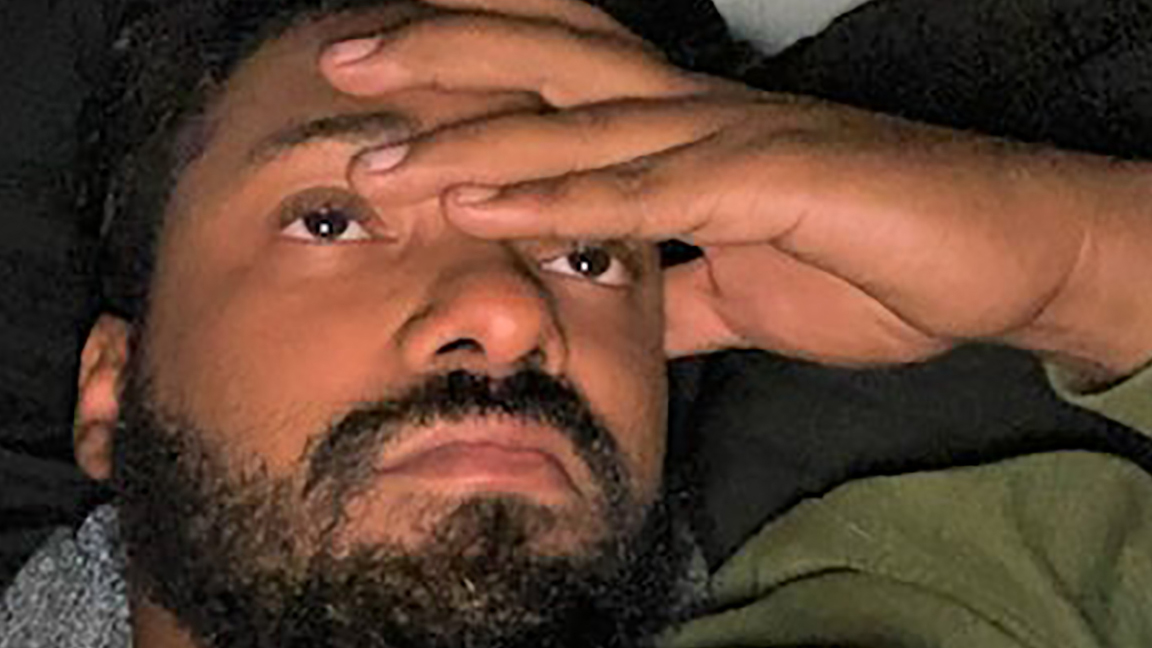
EVERY MORNING BETWEEN 6:30 and 7, for at least the past month, a driver in a red SUV has blasted his horn in the exact moment he passes Stew Singleton’s RV, which is parked on 17th Avenue in Salt Lake City.
It’s happened so many times that Singleton, lying in bed inside his 20-foot, 1987 Toyota Dolphin rig, often awakens in anticipation of the noise.
“It’s really scary because when you are in an RV there isn’t much of a shield between you and the world—just a piece of glass or a thin metal wall,” Singleton said. “It feels like whoever is making noise is three feet away from your bed.”
Other mornings, when the 30-year-old hasn’t been able to will himself to consciousness before the blare, Singleton bolts awake after it, as startled as he is angry.
On those days, Singleton glares out of his RV’s bedroom window to stare at the offending SUV driving down the otherwise quiet residential street, near a public park.
Singleton, who said he attended high school in Salt Lake City and then studied acting at the University of Utah until he got kicked out for “attendance issues,” earns a living of about $2,400 a month in a multitude of ways: sometimes as a DoorDash employee; sometimes as a hospitality worker. When he can borrow his girlfriend’s Subaru he also works as an Uber driver—she has been driving her own vehicle behind his RV as the couple attempts to follow the warm weather across the country.
For him, the nomadic lifestyle, something he has dipped in and out of since 2015, he said, “is a loophole in society.”
“It’s a way of getting around rent and bills that people assume are mandatory and that you are supposed to spend your day and your life being able to pay.”
I couldn’t find statistics that include all working folks who choose the nomadic lifestyle. But according to a study from MBO Partners, an organization that connects independent workers with private companies, the number of traveling workers it calls “digital nomads” has risen from 7.3 million to 10.9 million in the last year alone.
With all the freedom that Singleton experiences in the lifestyle, I asked him why he simply doesn’t park his car someplace else—somewhere without an SUV driver intent on waking him up every morning.
“So, it’s half a mile from the high school that I graduated from,” he said. “It’s on a quiet side of the Salt Lake Valley. It’s a clean street. The overpass is nice because the white noise of the cars is really soothing. It’s perfect, except for this one person who wants to make it known they don’t appreciate my presence in this neighborhood.”
Singleton said he paid $6,000 for his rig, which is white and beige with a BIDEN/HARRIS poster taped over its back window, and then spent another $10,000 upgrading it. Neither pretty nor dilapidated, the setup has drawn a lot of negative reactions, Singleton said.
“A lot of people see me with my solar panel and the 10K I put into the RV,” Singleton said, “and they think of me no differently than a homeless person begging on the street.”
Last month, a homeowner sprayed Singleton and Singleton’s dog, Ralph, with a sprinkler.
“We were standing in front of our RV,” Singleton said, “parked near this guy’s house.”
Another man looked at a Black Lives Matter sign that Singleton had taped over one of his RV windows at the time and screamed: “Black lives don’t matter! Fuck you and your dogs!”
At the time of our interview, parking on Salt Lake city streets in a self-contained RV was legal. However, on November 1, those laws, which had been suspended in March, are scheduled to change.
The police have come to Singleton’s RV to answer calls about “suspicious behavior” at least a couple of times in the past few months, Singleton said. “But I have never been cited or arrested for anything, because I haven’t done anything,” he said.
The continual experiences of people telling him “You can’t park here,” or “The last thing we need is another RV around here,” makes him feel like he’s in a fight against the world, he said.
“Just by the choice of the way I have been living, it’s as if I have been drafted by a war against regular suburban people,” Singleton said.
It’s a fight he’s determined to win.
“I worked in this city and served in this city, and if I wanted to buy an RV and live on the side of the street, I am going to do that,” Singleton said.
Within the confines of his 20-foot home on wheels, Singleton said, he tosses and turns at night, whether it’s because he’s thinking about his days, or he’s waiting for the sound of the horn to blast through his home again, or he’s fuming over the fact that it just did. During those times, his mind often turns to plans of revenge against the suburban honker.
“My plan is, I’m going to be awake at the time that he usually comes to honk. And as soon as he honks, I’m going to jump out of the RV and chase after in the Subaru and lay on the horn for a while.”
“How Did You Sleep Last Night?” is an ongoing series.
